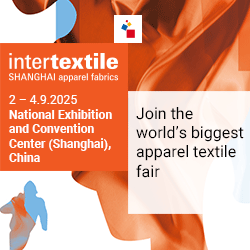Trade Minister Muhammad Lutfi revealed that there were Chinese textile products made from inappropriate raw materials. These products are widely circulated in Indonesia through e-commerce. Not a few people are interested because the price tends to be skewed.
"From China, sometimes in one study it was shown that textile products are sometimes actually waste, sometimes poisonous and dangerous. But we never know, just sewn them together, until they go to Indonesia. , just go in, "he said.
Lutfi will regulate the circulation of such a product because it will endanger the community. In addition, there is an injustice in competition with local products. When products from China succeed in reducing prices, Indonesian MSMEs find it difficult to outsmart and end up selling at high prices. As a result, domestic business actors must be unable to compete.
"This is what happened. Many UMKM (Micro, Small and Medium Enterprises) entrepreneurs were knocked out of the competition, because there was no equal playing field. Sometimes in Indonesia to sell cloth, there needs to be SNI (Indonesian National Standard), distribution permit. , this permit, that permit, "said Lutfi.
One example of domestic entrepreneurs in the hands of imported products is when a domestic business succeeded in advancing by employing 3,400 workers in the middle of 2016-2018. This industry has an economic turnover of more than US $ 650 thousand dollars / year or Rp. 9.3 billion.
Unfortunately, when the industry advanced, there was e-commerce that leaked various data from domestic businesses through artificial intelligence (AI) to the Chinese industry. As a result, imported products flooded Indonesia at very unequal prices and domestic businesses died out.
"If it happens like that, e-commerce is a battle, the meeting between sellers and buyers is not regulated, therefore it is not regulated like a boxing match, the competition will run wildly. This is what happens," he said.





